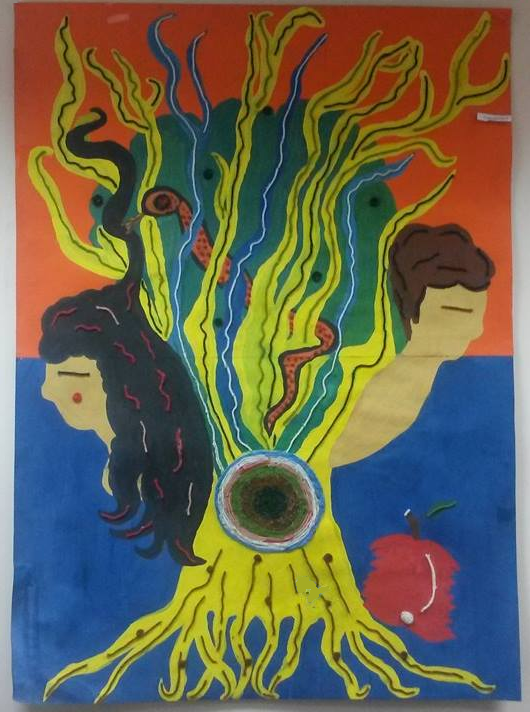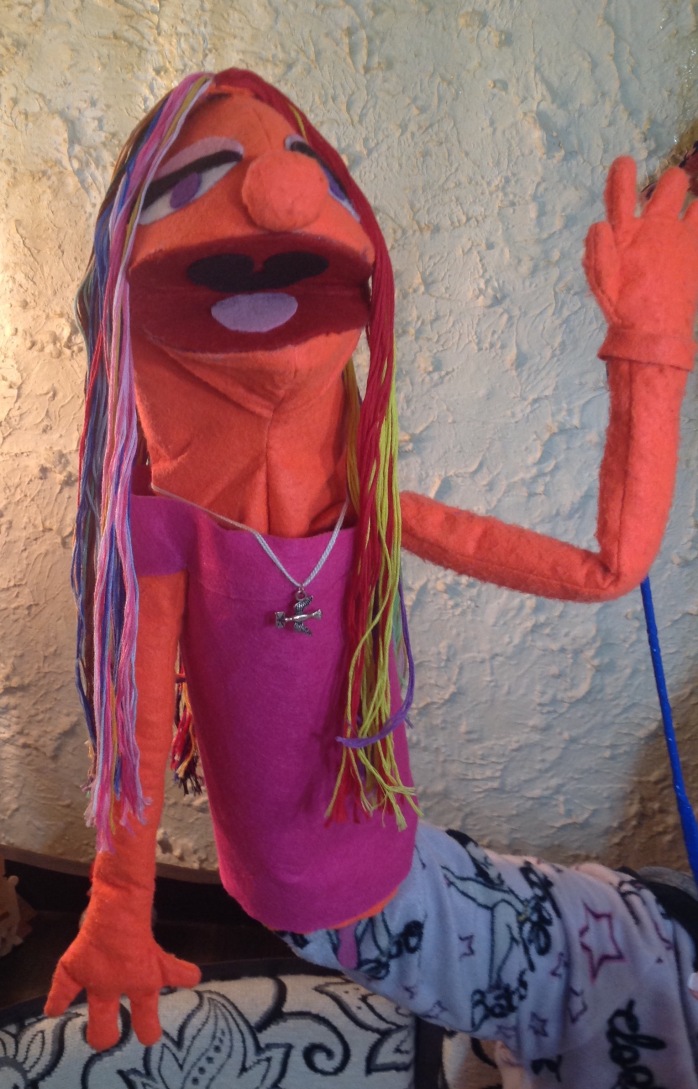My drawing Adam and Eva
Monthly Archives: Փետրվարի 2017
Մոմի փորձ
Balloon Magic
Ձգողական ուժ
Advice for language learners

It can sometimes be a little difficult to learn a foreign language fluently. But there are many things you can do to make your learning more successful.When you speak a foreign language, it’s normal to have an accent. That’s OK-other people can usually understand. It’s a good idea to listen CDs and try to imitate other speakers, to make your pronuciation better.If you see a new word and you don’t know what it means, you can sometimes guess the meaning from words you know, or you can look up the word in a dictionary.
A lot of good language learners try not to translate things from their first language. Translation is sometimes a good idea, but try to think in the foreign language of you can!
It’s also normal to make mistakes. When your teacher corrects a mistake in your writing or speaking, think about it and try to see why it’s wrong. But it’s more important to communicate so don’t be afraid to speak.
My handmade Muppet style puppet



Gravity Falls Puppet Show
Hyperglot! Meet Cardinal Giuseppe Mezzofanti…

Giuseppe Caspar Mezzofanti was a talented chap. A priest who had finished his theological studies before reaching the minimum required age, professor of Arabic at the University of Bologna and eventually chief keeper of the Vatican library. He was also a speaker of 38 languages. Actually, 38 is a conservative estimate. People who met him suspected that he spoke many more, due to his uncanny knack for remembering and recalling words and his love of learning. Lord Byron called Mezzofanti: “A monster of languages, the Briareus of parts of speech, a walking polyglot, and more; who ought to have existed at the time of the Tower of Babel, as universal interpreter. He is, indeed, a marvel unassuming also.” And he never even left Italy! So, what’s his story?
Childhood
Mezzofanti was born in Bologna, Italy, in 1774, the son of a carpenter. The first indication of his unusual talents came when, assisting in his father’s workshop, he overheard an old priest in a neighbouring building giving classes in Ancient Greek and Latin. Without ever having seen a Greek or Latin book, the young Mezzofanti remembered the words perfectly. This news soon made it to the old priest who took Mezzofanti under his wing. The young man’s path changed forever. After being sent to Scuole Pie (Church School), Mezzofanti met Spanish, Mexican and Guatamalan Jesuit priests who had been exiled from Spain. He soon picked up their language alongside Latin, Greek, Arabic, Hebrew, German, French and smatterings of others that the priests had learnt on their travels. As a young priest, it’s said that Mezzofanti was given a folio volume of the works of St. John Chrysostom and, after a single reading, could recite a page of the treatise “De Sacerdotio” word for word in the original Greek. Naturally, news of these unique abilities started to spread across Italy.
Easy come, easy go
At the age of 24, Mezzofanti was appointed professor of Arabic at Bologna University and shortly afterwards ordained as a priest. This happy arrangement didn’t last for long. After Napoleon’s army marched into northern Italy, peace only returned with the creation of the Cisalpine Republic to which the loyal priest refused to swear allegiance. He was promptly sacked from his position at the university. So what does a talented linguist do when faced with a career crisis? Much the same in the eighteenth century as today… Mezzofanti started offering private language tuition to wealthy families. When the Austrians forced Napoleon out of Bologna, Mezzofanti conversed with troops at the hospital where he was by then working. His love of learning languages was well nourished by the troops from all corners of Europe, from whom he learnt Hungarian, Polish, Czech, Gypsy, German dialects and Russian among others.
Fame
By 1807, word of Mezzofanti’s talent had spread far beyond the borders of Italy. One particularly well known episode took place when he was called to confess two foreigners condemned for piracy. His first attempt failed when, upon entering their cell, he found that they couldn’t understand a word he said. Unwilling to send them to the next life without a few words from God, the priest returned to his room, spent the night learning their language and returned to confess them in their own tongue the next day! Learning languages to carry out confession became a kind of party trick and Mezzofanti was said to have learned a little of many languages that way, including Sicilian dialect for the maid of a visitor in Bologna. At this point, it’s worth mentioning the Cardinal’s study techniques and lifestyle. Here are a couple of reported facts:
- He slept 3 hours a night.
- Even during the Alpine winters of northern Italy, he would never permit himself the indulgence of lighting a fire while studying.
- When alone, he thought in each and all of his various languages in succession to keep them fresh.
As Mezzofanti’s reputation spread, he became a fixture in high society. He was invited to live in Paris (he declined), met nobility from all over Europe and beyond, conversing with each nobleman in their own language, and ended becoming a cardinal in Rome after a rebellion in Bologna forced him south. The pope allegedly said that Mezzofanti’s arrival in Rome was the only good thing to come of the rebellion!
Later Years
He continued throughout his life to acquire languages throughout his life and is said to have spoken 38 languages fluently: Ancient Armenian, Modern Armenian, Persian, Turkish, Allmnese, Maltese, Hebrew, Rabbinical Hebrew, Arabic, Cbaiaee, Coptic, Greek, Romaic, Latin, Italian, Spanish, Portuguese, French, Illyrian, Russian, Polish, German, Swedish, Danish, Dutch, English, Czechish (or Bohemian), Magyar, Chinese, Svriac, Amarinna, G’eez, Guzarattee, Hindustani, Basque, Wallachian, Calitornian and Algonquin. But in addition to these, he was known to speak or read many more without claiming fluency. These include languages as diverse as Quechua and Cornish! Cardinal Mezzofanti lived out his last years peacefully in Rome and died in 1849, having come a long way from his humble beginnings in Bologna. His last words were in Italian: “Andiamo, andiamo, presto in Paradiso!” which translates roughly as, “Let’s go, let’s go… soon in paradise!”
Ես հարուստ եմ
Հարուստ պետք չէ լինել միայն գումարով, այլ պետք է լինել շրջապատով, ընկերներով և ընտանիքով հարուստ: Ովքեր կհոգան քո մասին և դու էլ կհոգաս իրենց մասին: Ովքեր կուրախանան քո ուրախությունով և կտխրեն քո տխրությամբ և դու էլ նույնը կվարվես իրենց հետ: Ես ինձ համարում եմ ընտանիքով, ընկերներով և շրջապատով հարուստ մարդ: Եթե շրջապատը լավ չպահես, եթե բոլոր այն մտերիմ մարդկանց համար լավ խնամք չտանես մեկ օրում գումարի նման կկորչեն քո կյանքից: Իսկ շրջապատը, ընկերները և հատկապես մեր ընտանիքը չկորցնոլու համար պետք է մեր սիրտը և հոգին ներդնենք դրանց մեջ և հուսալով, որ նույն արձագանքը կունենանք մեր հանդեպ: Եվ վերջապես հարստանում ենք այն ժամանակ,երբ որ սովորում ենք սիրել ուրիշներին:
Перевод от руссково на армянсний
Նա միայնակ լողում էր ծովերով և օվիկանոսներով, դահուկ էր քշում Հյուսիսային և Հարավային բևեռներում, հեծանիվoվ անցնում է ամբողջ Ռուսաստանով, բարձրանում էր աշխարհի ամենաբարձր լեռները, ճամփորդությունների ժամանակ գրում է գրքեր և հոդվածներ, նկարում է և լուսանկարում է: Մի անգամ երբ մենակ է եղել օվկիանոսում, վիրահատել էր ինքն իրեն:
Ֆյոդոր Կոնյուխովը ծնվել է Ազովի տարածքում 1950թ-ին ձկնորսի ընտանիքում: Դեռ մանկուց սիրում էր հոր հետ ծով գնալ: Նա լավ լողում և վազում էր, իսկ 15 տարեկանում նա նավակով լողաց ամբողջ Ազովի ծովը: Ֆյոդորը միշտ սիրել է ծովը և ավարտել է Օդեսայի ծովային և Լենինգրադի բևեռային դպրոցները: 1977թ նա կազմակերպեց Յախտայով ճամփորդություն դեպի Խաղաղ օվկիանոսի հյուսիս:, դահուկային արշավախմբով գնացել է դեպի Արկտիկա և ահա 1990թ նա որոշեց դահուկնրով գնալ Հյուսիսային բևեռ միայնակ:Նա տանում էր ծանր բեռ ուսերին, քնում էր վրանում սառույցների վրա և 72 օրում հասավ Հյուսիսային բևեռ: 5 տարի հետո Ֆյոդոր Կոնյուխովը գնաց դահուկներով Հարավային բևեռ միայնակ:Չնայած շատ վատ պայմաններին՝ջերիմասիճանը -60 աստիճան, քամու արագությունը 30մ, նա հասավ Հարավային բևեռ 59 օրում:
Չնայած Կոնյուխովը պրովեսիոնալ ալպինիստ չէր 1986թ որոշեց բարձրանալ 5 աշխարհամասերի լեռնային բարձրունքները՝ Էլբռուս Կովկասում 5642մ, Էվերեստը Ասիայում 8248մ, Կաստյուսշկա լեռը Ավստրալիայում 2230մ, Հարավ-Ամերիկիան Ականկագոա 6960մ, Կիլիմանջարոն Աֆրիկայում 5895մ, Հյուսիս-Ամերիկյան Մանկինլին 6193մ և Անտակտիկայի Վինսի բարձունքը 5140մ: Նա այդ ամենը անցավ 5 տարում: Անտարկտիկայում քիչ մնաց մեռներ սրտից ու սովից արշավախմբի վերջում: Օդանավը ուժեղ քամու պատճառով չէր կարողանում թռչել 3 օր:
Բայց ամենից շատ Ֆյոդոր Կոնյուխովը սիրում էր ծովը ու օվկիանոսը: Նա 4 անգամ լողացել է աշխարհի շուրջ միայնակ: Առաջին անգամ լողացրել է Յախտայով Ավտսալիայի Սիդնեյ նավահանգսից և վերադարձավ այն տեղ 224 օրում: Ճանապարհին եղել են ցուրտ քամիներ էին անձևով և ձյունով, վտանգավոր հանդիպումներ կետերի և Այսբեռգների հետ: Ճանապարհորդը նիհարել էր 11 կգ: Արդեն մեկ տարի հետո նա գնաց երկրորդ շուրջերկյրա ճանապարհորդությոան մեծ Յախտայով-Էկվատորով ՝ Տայվան, Սինգապուր, Հնդկական օվկիանոս, Կարմիր և Միջերկրական ծովեր, Ջիբլարթար, Ատլանտիկա, Հավայան կզիններ և Տայվան:
Այդ ճանփորդության ժամանակ տեղի ունեցավ մի դրամատիկ-հերոսական եպիսոտ: Ֆիլիպինների շրջանում կապիտանը ժանր հիվանդդացավ: Երբ նա հիվանդանոցում էր ծովահենները տարել էին նրա Յախտան ուրիշ կղզի: Բայց Կոնյուխովը ծառայել էր Բալթյան նավատորմում, եղել էր Վիետնամում և Նիկարագուայոււմ: Նա դուրս եկավ հիվանդանոցից և փախցրեց ուրիշ ծովահենների նավը, որպեսզի գտնի իր Յախտան կզիներից մեկում:
Բոլոր ճանապարհորդությունների ժամանակ Ֆյոդոր Կոնյուխովը ժամանակ էր գտնում գրելու և նկարելու: 1998թ հրատարակվեցին նրա երեք գրքերը: “Տեսել եմ ես նոր երկինք և նոր երկիր“, “Գավռ Չառլսոն“, և “Ինչպես է բացահայտել Անտարկտիդան“, իսկ դրանից առաջ հրապարակվել է »Ռուս ճանապարհորդի օրացույց» գիրքը:
Ահա թե ինչ է ասում ինքը Ֆյոդոր Կոնյուխովը իր ճանապարհորդությունների փիլիսոփայության մասին: Ես ճանապարհորդ եմ ճանապարհորդությունները ինձ օգնում են հասկանալ կյանքը, ինչի համար է մարդը ծնվում, անցնում է շատ դժվարությունների միջով, ամուսնանում է ունենում է երեխաններ, իսկ հետո մեռնում է և այդպես անվերջ,մեկը ծովում մյուսը Հիմալայներում, ես շատ եմ այդ մասին մտածել: Միայն ճանապարհորդության ժամանակակ է որ ժամանակ ես գտնում խորհելուայդ մասին: Ով ուզում է բարձրանալ Էվերեստը, ոտքով հանցնի Հյուսիսային բևռ, ցանկանում եմ ասել՝ նախ պետք է գտնես և հասկանաս ինքդ քեզ: